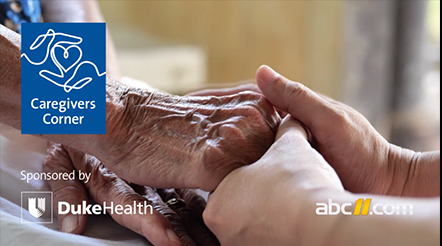Caregivers Corner: Caring for aging loved ones during the holidays


Caring for aging loved ones during the holidays: navigating change with compassion.
While spending time with your aging loved one during the holidays, it's important to be attuned to subtle signs that they may require additional assistance. Look for changes in behavior, physical appearance, or daily routines. Pay attention to any signs of forgetfulness, difficulty managing medications, or challenges in mobility. Changes in hygiene, weight loss, or a neglected living environment can also be red flags.
Engage in open conversations about their well-being and listen to any concerns they may express. Be mindful of signs of social withdrawal or depression. These subtle observations can provide valuable insights into your loved one's overall health and help you determine if additional support, whether through increased caregiving assistance or professional services, is necessary.
If you notice significant changes or if your loved one exhibits difficulties in daily activities, it may be time to consult with healthcare professionals or consider exploring more comprehensive care options. Promptly addressing these signs ensures that your loved one receives the support they need, fostering a safer and healthier environment for them during the holiday season and beyond. Regular check-ins and open communication are essential for maintaining their well-being and addressing potential challenges before they escalate.
The holiday season is a time of joy, celebration, and togetherness. However, for caregivers, it can also bring a unique set of challenges. Balancing caregiving responsibilities with the festive spirit requires careful planning and self-care. Here are some tips to help caregivers navigate the holiday season with grace.
Plan Ahead: Begin by creating a realistic schedule that accommodates both caregiving duties and holiday activities. Plan breaks for yourself and communicate with family members about your availability. Having a well-thought-out plan reduces stress and ensures your loved one's needs are met.
Delegate Responsibilities: Don't hesitate to ask for help. Enlist the support of family and friends to share caregiving responsibilities. Delegating tasks allows you to participate in holiday festivities without feeling overwhelmed.
Adapt Traditions: Embrace flexibility and be open to adapting holiday traditions to suit your current circumstances. Simplify activities, focus on what truly matters, and create new traditions that align with your caregiving responsibilities.
Utilize Respite Care: Take advantage of respite care services to give yourself a well-deserved break. This can allow you to enjoy holiday gatherings or engage in self-care activities, knowing your loved one is in capable hands.
Practice Self-Care: It's crucial to prioritize your well-being during the holidays. Set aside time for self-care activities, such as exercise, meditation, or a quiet moment with a book. Recharging your own batteries will help you provide better care to your loved one.
Communicate with Understanding: Clear communication is key during the holidays. Discuss plans and expectations with your loved one, family members, and anyone involved in caregiving. Be understanding of everyone's needs and find compromises that ensure a harmonious holiday season.
Seek Support: Connect with support groups or seek professional advice if needed. Sharing experiences with others who understand the challenges of caregiving can provide comfort and valuable insights.
Being a caregiver during the holidays requires a delicate balance between fulfilling responsibilities and embracing the festive spirit. By planning ahead, seeking support, and practicing self-care, caregivers can navigate the season with grace, ensuring that both you and your loved ones experience the joy of the holidays.
If you are caring for a loved one, hop on over to ABC11's Caregivers Corner to get support from more than 2,500 other people in our community who are faced with similar challenges.




